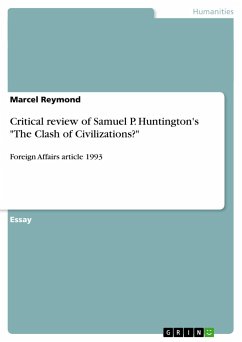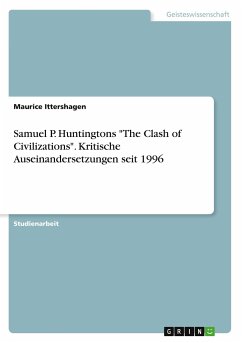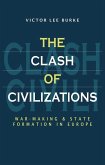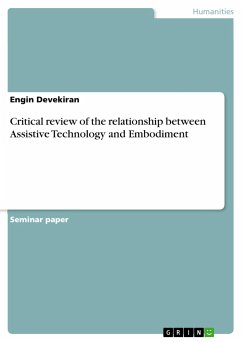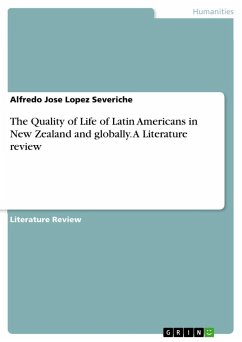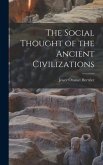Essay from the year 2012 in the subject Sociology - Classics and Theoretical Directions, grade: A, , course: INTL5000, language: English, abstract: In an article entitled 'Clash of Civilizations?', published in Foreign Affairs, American political scientist, Samuel P. Huntington outlined his thesis about the post Cold War world order. According to him, conflicts have evolved from feuds among nation states to ideological hostilities which would develop further into cultural clashes. He put forward the theory that nation states and other groups which share cultural affinities would unite and cooperate and fight as one, against other cultural blocks. He introduced the main forces of his new world order as being eight major civilizations (Western, Confucian, Japanese, Islamic, Hindu, Slavic-Orthodox, Latin American and eventually African) of which the Muslim, the Western and the Confucian would be dominant. Huntington predicted a decline of the western civilization should its members not unite to defend their power status. He identified religion, especially Islam as one of the most important sources for future clashes likely to further weaken the West. He prophesied a more unstable and anarchic world. Huntington's ideas differed from Francis Fukuyama's outlined in a 1989 essay "The End of History", in which he predicted a conversion of states into liberal capitalist democracies, which would not wage war against each other, according to the democratic peace theory. A more stable and harmonious world order would have been its outcome.Huntington's article and the related book (The Clash of Civilizations and The Remaking of World Order, 1996) were widely debated and criticized by many scholars. This might be explained by the controversial thematic and some methodological flaws, mentioned further in this essay, which allowed for interpretation and differing opinions. His thesis makes very little reference to other scholars and offers almost no quantitative empirical data to strengthen the arguments put forward. His mainly qualitative arguments seem to rest on his particular world view (Realist) and are therefore more easily refuted by scholars with other perceptions of the world. However appealing Huntington's civilizations' clash theory may have been, it could not be substantiated by most other social scientists.
Hinweis: Dieser Artikel kann nur an eine deutsche Lieferadresse ausgeliefert werden.
Hinweis: Dieser Artikel kann nur an eine deutsche Lieferadresse ausgeliefert werden.

